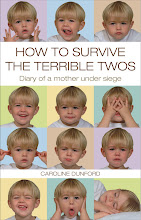Now, I've only read about thirty of these yes/no stories over the last week and I'm sure there have been many more, but as yet I haven't found one that really seems to grasp the issue. It's more like a bunch of nuns attempting to explain to each other what sex is actually like.
What I think people are missing is that e-books and e-readers aren't going to do one specific thing. Or in other words neither e-book or e-reader is a single one use product.
Let me explain.
USE ONE
If I'm going on holiday I'd be delighted to take the free e-reader on my Ipod touch and have twenty odd books on it. I don't mind the reader isn't perfect. I'm not looking for a book alternative I'm looking for a way of lugging an unfeasibly large amount of escapist fiction on holiday with me. I'll put up with the odd bit of flickering.
USE TWO
E-publishing can bring a huge amount of new writing to us cheaply and easily. Here, I'm more concerned that my e-publisher has taste and discretion. We're talking about loyalty to a new industry, where I can log on read a review and for a fraction of the cost download a writer I may well be thrilled to discover. I'm still not that fussy about how I read it. It's the story that's important. Of course, I don't want to get a migraine doing it, but I may even be using my PC to read during my lunch hour and I may well decide to buy the POD if it's offered.
USE THREE
I'm a print publisher who wants to promote my books. I may well give them away free in a belief they encourage sales - and so far I believe, feel free to correct me, mainstream books that are released as e-books do hike sales. In this case I'm probably reaching those people not that into e-books (for whatever reason) who have a quick flick through and decide to buy the paper book.
USE FOUR
I'm a print publisher who believes all books should be available as e-books at the same price. Ain't going to work. E-readers are coming on in leaps and bounds but the leisurely comfort of a paper book is still hard to beat. Yes, this may happen in the future, but the future's not here yet.
USE FIVE
Huge reference books - not that much different to those DVD reference works, but easier to keep in your pocket. Main market liable to be academics and students - and maybe bird watchers as long as the e-reader is quiet enough.
By now you're hopefully getting the idea. The ebook and the e-reader will be many things to many people. At the moment we have critics talking as if all e-books and e-book readers do the that same thing which is like saying all time telling devices are the same - when in reality we have church clocks, mantel piece clocks, wrist watches, bedside clocks, precision clocks - they all let us do the same thing, tell the time, but in many different ways and for many subtly different reasons. And you're certainly not going to buy a church clock as a bedside alarm in much the same way as you're not yet going to spend hundreds of pounds or dollars on an e-reader if you're only intending to use e-books to decide what you're going to buy in print.
I like the whole concept of e-books. I predict they will have a future, but it's an organically growing future and it is as much down to the social requirements as it is down to the evolution of tech.






